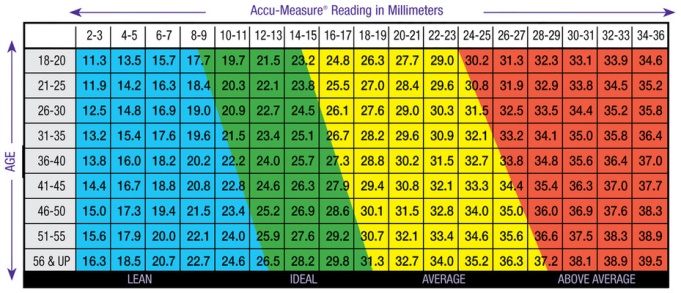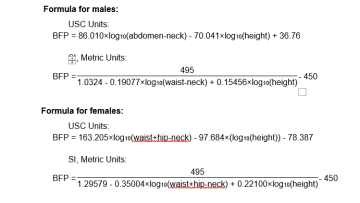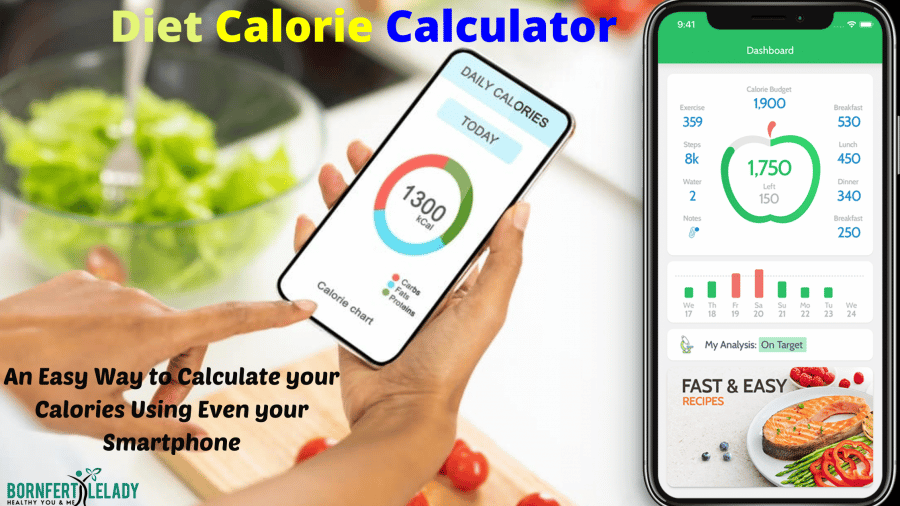Today, Healthsoothe incorporates a FREE Body Fat Calculator for men & women that you can use to calculate or know your body fat and other important things about your body values. This Free Body Fat Calculator uses 7 different methods to calculate body fat percentage: Covert Bailey Method, US Navy Method, Heritage BMI, YMCA, Jackson/Pollock 3-Site Caliper, Jackson/Pollock 4-Site Caliper, and, Jackson/Pollock 7-Site Caliper.
Furthermore, Healthsoothe’s Body Fat Calculator allow you to calculate body fat percentage, lean body mass, fat body mass, and body fat classification parameters fast and simply.
And guess what? It is a Free Body Fat Calculator that works for any gender or sex, meaning it is a Free Body Fat Calculator for men & women.
This Free Body Fat Calculator gives the ideal gain or lose value needed to reach the ideal body you have always desired. Cool, right? Sure, it is. That is Healthsoothe for you. We are always coming up with innovative ways for you to take care of yourself.
How to calculate and use the healthsoothe body fat calculator?
- Select your gender
- A select preferred measurement system
- Select your tool for measurements
- Select method for calculation
- Fill in weight, height and age
- Fill all fields with measurements shown under the title "Provide measurement"
- Press calculate button
Covert Bailey Method
Covert Bailey Method
Basic measurement system: inches
Basic measurement for men: Hips, Waist, Forearm Circumference, Wrist
Basic measurements for women: Hips, Thigh, Calf, Wrist
US Navy Method
US Navy Method
Basic measurement system: cm
Basic measurement for men: Height, Neck Circumference, Waist (at navel)
Basic measurements for women: Height, Neck Circumference, Waist (smallest point), Hips (at the fullest point)
Heritage BMI
Heritage BMI
Basic measurement system: in, lbs
Basic measurement for men: Age, Weight, Height
Basic measurement for women: Age, Weight, Height
Jackson/Pollock 3-Site Caliper
Basic measurement system: mm
Basic measurement for men: Chest, Abdomen, Thigh
Basic measurement for women: Triceps, Thigh, Suprailiac
How do you calculate body fat percentage at home?
What is the ideal body fat percentage for men?
What is the ideal body fat percentage for women?
Today’s article will also elaborate on how to calculate body fat using 7 different methods which I have listed above so that you can pick the method(s) that is best suitable for you all-round.
Alright, let’s move!
- Related calculators: Diet Calorie Calculator | An Easy Way to Calculate your Calories Anyway and Anytime
How do I Calculate my Actual Body Fat? - FREE Body Fat Calculator for Men and Women

There are many methods for calculating your body fat. Some approaches need the use of specialized equipment or accessibility to specialist services. These approaches are widely acknowledged to be the most accurate.
At home, you may also estimate your body fat percentage. A body fat calculator provides the most convenient technique since it does not need any special equipment or long visits with a doctor.
The FREE Body Fat Calculator for Men & Women can measure your total body fat percentage, lean body mass, fat body mass, body fat classification based on precise parameters.
This approach will provide you with an estimate of your body fat, which you may then validate with additional ways if desired. To acquire a quick body fat measurement, all you'll need is a simple tape measure and around five minutes.
Healthsoothe’s FREE Body Fat Calculator for Men & Women can measure your total body fat, lean body mass, fat body mass, and body fat classification based on precise parameters – 7 different methods.
So, what are these 7 methods, and which one(s) is best for you?
Keep reading to find out.
Body fat percentage chart
If you want to have an idea of ideal or normal body fat percentages, and also know where your body fat percentage fall, here is a body fat percentage chart to check out:

FREE Body Fat Calculator for Men & Women - Calculate Body Fat Using 7 Different Methods
This Free Body Fat Calculator uses 7 different methods to calculate body fat percentage. These 7 methods are as follows:
- Covert Bailey Method
- US Navy Method
- Heritage BMI Method
- YMCA Method
- Jackson/Pollock 3-Site Caliper Method
- Jackson/Pollock 4-Site Caliper Method
- Jackson/Pollock 7-Site Caliper Method
The procedures for the above 7 methods are explained below. Read on.
Measuring Body Fat Percentage - Covert Bailey Method
This is most likely the most recent approach accessible. You will need to take numerous readings of your body in order to utilize this formula.
Covert Bailey Method of body fat calculation is a standard and suggested calculation, and a body tape measure is required, which can be done with a body measuring tape.
Formula for women
To calculate a female's percentage of body fat using this approach, four separate parameters must be measured: Hips (A), Thigh (B), Calf (C), and Wrist (D). All dimensions should be obtained at their broadest points and recorded in inches.
The formula:
A+0.8B - 2C - D = Fat% (for females 30yrs old or younger)
A+ B - 2C - D = Fat% (for females over age 30)
Formula for Men
The Covert Bailey Method requires the following measures for a guy to calculate body fat percentage: Hips(A), Waist(B), Forearm Circumference(C), and Wrist(D). All dimensions should be obtained at their broadest points and recorded in inches.
The formula:
B + 0.5A - 3C - D = Fat% (for males 30yrs old or younger)
B + 0.5A - 2.7C - D = Fat% (for males over age 30)
For additional details on this strategy, see Covert Bailey's 1999 book: The Ultimate Fit or Fat.
Measuring Body Fat Percentage - US Navy Method
This method employs the US Navy fitness method to assess body fat percentage. Enter your hip, neck and waist measurements using a tape measure.
The equations used in the approach were created in 1984 at the Naval Health Research Center by Beckett and Hodgdon.
The following equations and technique for measuring the appropriate body parts are presented for the US Navy approach:
For males, measure the girth of the waist at a level line around the navel, and for women, measure just at level with the least breadth. To achieve precise measures, make sure you do not draw your stomach inwards.
Starting underneath the larynx, determine the circumference of the neck, sloping downwards to the front. Avoid extending your neck.
Only for females: Take the greatest horizontal measurement of the hip circumference.
Once you have these measures, apply the following calculations to determine your body fat.
Two equations are supplied, one using the United States Customary System (USC) and inches, while the other by using the International System of Units and centimeters:

It is important to note that the findings of these assessments are simply estimates because they are dependent on many various expectations in order to be as relevant to as many individuals as feasible.
The use of tools like hydrostatic density testing or bioelectric impedance analysis is required for more precise measures of body fat.
When these measures are combined with your gender and height, our body fat calculator will calculate your body fat percentage, lean mass, fat mass, and overall naval fitness category.
Fat mass (FM) formula:
FM = BF × Weight
Lean Mass (LM) formula:
LM = Weight - FM
What is my Navy Fitness Level when Measuring Body Fat using the Navy Body Fat Test and Navy Body Fat Chart?
This Body Fat Navy Calculator employs the US Navy fitness method to assess body fat percentage. Enter your hip, neck and waist measurements using a tape measure.
When these measures are combined with your height and gender, our navy calculator will calculate your body fat percentage, fat mass, lean mass and overall naval fitness category.
The water displacement test is the most efficient method to estimate body fat percentage, however, the YMCA formula or Navy Body Fat test is within 1-3% of the water displacement test for most individuals.
Measuring Body Fat Percentage - Heritage BMI Method
The heritage BMI method is another way of estimating body fat percentage. BMI is calculated using formulae that require the measurements of a person's weight and height.
Given a person's BMI, the following formulae may be used to calculate their body fat percentage.
Body fat percentage (BFP) formula for adult males:
BFP = 1.20 × BMI + 0.23 × Age - 16.2
Body fat percentage (BFP) formula for adult females:
BFP = 1.20 × BMI + 0.23 × Age - 5.4
Body fat percentage (BFP) formula for boys:
BFP = 1.51 × BMI - 0.70 × Age - 2.2
Body fat percentage (BFP) formula for girls:
BFP = 1.51 × BMI - 0.70 × Age + 1.4
Measuring Body Fat Percentage - YMCA Method
You can calculate the body fat percentage for both men and women in the respective YMCA body fat formula. The constant value used in the YMCA formula varies for both genders as both require a different level of fat content to maintain good health.
Formula:
- Body Fat Percent women = - 76.76 + 4.15a - 0.082b / b
- Body Fat Percent men = - 98.42 + 4.15a - 0.082b / b
Where,
- a = Waist
- b = Weight
You can know your body fat level just by computing your waist length and body fat value here in the YMCA body fat formula.
For women, multiply the waist by 4.15, and subtract the obtained value from 76.76. On another end, multiply the weight by 0.082 and divide the obtained value by weight again.
Now subtract both the resultant value. Similarly, you can calculate the fat level percentage for men.
Measuring Body Fat Percentage - Jackson/Pollock 3-Site Caliper Method
The Jackson/Pollock method uses skin folds to measure body fat percentage. This one uses skin folds from 3 different points which are the chest, abdomen and thigh. The equipment used is a skinfold caliper
Procedure
Measurements are taken on the right side of body. Caliber needs to be perpendicular to the site analyzed. The participant must relax the muscle group that is being assessed.
When skin fold is pinched, the practitioner should be taking a reading at the middle of the pinched skin, not the apex or base. Wait for 1 to 2 seconds after releasing caliber, and record the closest 0.5mm. Retake each site in order to obtain accurate readings.
Male measurements:
- Chest: diagonal fold half the distance between the anterior axillary line and the nipple.
- Abdominal: vertical fold 2cm to the right of the navel.
- Thigh: midpoint of the anterior side of the upper leg between the patella and top of the thigh.
Female measurements:
- Tricep: vertical fold at the midpoint of the posterior side of the tricep between shoulder and elbow with arm relaxed at the side.
- Suprailiac: diagonal fold parallel and superior to the iliac crest.
- Thigh: midpoint of the anterior side of the upper leg between the patella and top of the thigh.
Measuring Body Fat Percentage - Jackson/Pollock 4-Site Caliper Method
The Jackson-Pollock 4-spot body fat test is another body fat calculation that helps to provide a fairly accurate representation of an individual’s body fat percentage.
The Jackson-Pollock 4-spot body fat test is a simple method that can be performed without special equipment or professional training. All that is needed is a pair of skinfold calipers and a basic bathroom scale.
The Jackson-Pollock 4 method gives an estimate of body fat percentage and lean body mass based on weight, age, and the thickness of four different skinfold measurements: tricep, suprailiac, abdominal and thigh.
With the Jackson-Pollock 4-spot body fat test method, the skinfold sites are the same for both males and females.
The Jackson-Pollock 4-spot body fat test differs from the Jackson-Pollock 3-spot body fat test in that it utilizes a fourth skinfold site, which in theory makes this method slightly more reliable.
Jackson-Pollock 4 Skinfold Locations and Procedures for Males and Females
- Tricep: The tricep measurement is a vertical skinfold that is taken halfway between the top portion of the shoulder and the elbow.
- Suprailiac: For the suprailiac measurement, take a diagonal skinfold measurement above the superior anterior iliac crest, or the area above the upper and forward protrusion of the hip bone.
- Abdominal: For the abdominal measurement, take a vertical fold of skin that is one inch to the right of the belly button.
- Thigh: For the thigh measurement, a vertical fold of skin is to be taken that lies halfway between the knee cap, or the patella, and the inguinal crease (the location where the top of the thigh connects with the hip).
Jackson-Pollock 4 Body Fat Formula for Males
If you would like to calculate body fat using the Jackson-Pollock 4-spot method, and your test subject is a male, use the formula below.
Measure the following skinfolds (in millimetres) with body fat callipers: Abdominal, Tricep, Thigh and Suprailiac
- Body Density = (0.29288 x sum of skinfolds) – (0.0005 x square of the sum of skinfolds) + (0.15845 x age) – 5.76377
- Body Fat Percentage (%) = (495 / Body Density) – 450
Jackson-Pollock 4 Body Fat Formula for Females
If you would like to calculate body fat using the Jackson-Pollock 4-spot method, and your test subject is a female, use the formula below.
Measure the following skinfolds (in millimetres) with body fat callipers: Abdominal, Tricep, Thigh and Suprailiac
- Body Density = (0.29669 x sum of skinfolds) – (0.00043 x square of the sum of skinfolds) + (0.02963 x age) + 1.4072
- Body Fat Percentage (%) = (495 / Body Density) – 450
Measuring Body Fat Percentage - Jackson/Pollock 7-Site Caliper Method
Just like that of 3 and 4-site calliper methods, this method is also used to estimate body fat % based on measurements of subcutaneous fat. The equipment used is still the skinfold calliper.
Procedure
Measurements are taken on the right side of body. Caliber needs to be perpendicular to the site analyzed. The participant must relax the muscle group that is being assessed.
When the skin fold is pinched, the practitioner should be taking a reading at the middle of the pinched skin, not the apex or base. Wait for 1 to 2 seconds after releasing caliber, and record the closest 0.5mm. Retake each site in order to obtain accurate readings.
Sites to take the measurement
- Tricep: vertical fold at the midpoint of the posterior side of the tricep between shoulder and elbow with arm relaxed at the side.
- Chest: diagonal fold half the distance between the anterior axillary line and the nipple.
- Subscapular: diagonal fold 2cm from the inferior angle of the scapula.
- Midaxillary: at midaxillary line horizontal to xiphoid process of the sternum.
- Suprailiac: diagonal fold parallel and superior to the iliac crest.
- Abdominal: vertical fold 2cm to the right of the navel.
- Thigh: midpoint of the anterior side of the upper leg between the patella and top of the thigh.
Tips for Measuring Your Body
This will assist in ensuring that now the equations calculate the most precise estimation of body fat proportion feasible:
- Do not use outdated or stretched-out measuring tape.
- All measures should be collected once the body is relaxed.
- To prevent a big mistake, many measurements should be obtained and then averaged.
- After a full night's sleep, measurements should be collected in the morning.
- Unless otherwise specified, dimensions must be taken at their widest point.
What Are the Health Risks Associated with a Low BMI?
Women with a low BMI and a lower-than-average body fat percentage are at danger of a variety of difficulties, including hypothalamic dysregulation, which means your body's capacity to regulate body temperature, reproduce and make hormones will be severely hampered.
Due to the body's inability to create the appropriate hormones, some women with extremely low BMI scores may even have a temporary cessation of their menstrual period (known as hypothalamic amenorrhea).
A low BMI may also indicate hyperthyroidism or an overactive thyroid. While hyperthyroidism may cause losing weight, it can also cause ailments such as heart problems and osteoporosis.
A low BMI may also lead to weakness, exhaustion, and lethargy, as well as depression.
This is why it's critical for women to have a healthy, balanced diet that contains enough energy to maintain healthy body weight.
What Can You Do to Improve Your BMI Score?
Changing your diet, decreasing stress, and exercising consistently may all help you improve your BMI.
Depending on your BMI, you'll need to adjust your nutrition to ensure you're getting the right number of nutrients and nutrients to keep your BMI healthy.
Flash diets that encourage rapid weight loss/gain are not advised. Instead, prepare a diet that includes nutritionally balanced, calorie-controlled meals. When implementing a weight reduction plan, fasting is also regarded as a helpful practice.
Stress reduction also a significant role in lowering your BMI. Stress has a substantial influence on body composition and may affect individuals in a variety of ways.
Some individuals may be underweight as a result of stress, while others could gain weight.
Stress may be reduced by incorporating easy relaxation activities into your regular routines, such as breathing exercises, meditation, and even yoga.
Regular exercise is necessary regardless of your BMI. You don't have to do anything tough; just walking for 20 minutes every day may provide several health advantages.
While exercise has obvious weight-loss advantages, it's also crucial to consider the good impact exercise might have on your emotional and mental well-being – a healthy mentality can dramatically boost your success in reducing your BMI score.
Exercising may also increase muscle mass, giving the impression that your BMI is not increasing. However, it's vital to remember that BMI isn't always the most precise indicator of body fat percentage.
What’s a Healthy Body-Fat Percentage for Women?
A healthy body fat percentage for women is regarded to be between 20% and 30% — 20% for young women and up to 30% for elderly women.
Women need a healthy quantity of body fat for a variety of reasons, including the generation of hormones such as estrogen and progesterone.
It's important to note that overall body fat % might vary based on your lifestyle at any given moment, so whether it's somewhat greater or lower than normal, you shouldn't be too concerned.
While having a high body-fat percentage might provide a number of health problems, such as cardiovascular disorders, having a low body-fat % can also pose health hazards.
What’s a Healthy BMI During Pregnancy?
Many healthcare providers advise women to improve their BMI before getting pregnant in order to lessen the risk of difficulties during pregnancy.
However, the CDC recommends a safe weight increase range during pregnancy based on your pre-pregnancy BMI.
For instance, if your BMI is within the usual range of 18.5-24.9 before pregnancy, gaining 25-35lbs (11.3-15.8kg) during pregnancy is considered healthy.
The following are the healthy body weight gain ranges based on the pre-pregnancy BMI:
- BMI less than 18.5: 28 to 40 pounds (12.7kg to 18.1kg)
- Between 18.5-24.9 BMI: 25-35 pounds (11.3kg to 15.8kg)
- BMI between 25 and 30: 15 to 25 pounds (6.8kg to 11.3kg)
- BMI more than 30: BMI more than 30: 11 to 20 pounds (4.9kg to 9kg)
If you're expecting more than one child, the aforementioned ranges will vary.
Being overweight or obese during pregnancy may lead to issues such as diabetes, elevated blood pressure, miscarriages, and the necessity for a C-section.
Which Method Is the Most Effective?
It should be remembered that no formula is flawless. In actuality, many more variables influence body fat levels than simply the few items tested for these calculations.
The Modified YMCA Way was the most precise method for me. Most individuals, however, would tell you that the YMCA method or Department of Defense Method is the most precise.
Others, though, vouch by Covert Bailey's way. Personally, I like experimenting with various approaches to determine the average and range of results. Based on that data, I have a very decent sense of what my overall fat proportion is.
Keep in mind that, like everything else, all of these formulas have certain general limitations:
- Children and anyone under eighteen years should not use these equations.
- These algorithms may compute body fat percentages erroneously for the aged, ill, and very athletic people.
All right, guys, that is it for now for FREE Body Fat Calculator for Men & Women. I hope Healthsoothe answered any questions you had concerning the FREE Body Fat Calculator for Men & Women.
If you still have questions concerning the FREE Body Fat Calculator for Men & Women, you can check our FAQs section below.
And always remember that Healthsoothe is one of the best health sites out there that genuinely care for all.
Try this low-calorie turkey burger

Try this low-calorie turkey burger
Ingredients
- 450 g turkey mince
- 1 Egg beaten (beaten)
- A handful of flat-leaf parsley finely chopped
- 1 tbsp garlic granules
- ½ lemon zested
CHUTNEY
- 4 vine tomatoes finely chopped
- 1 Bay leaf
- 1 Small red onion finely chopped
- 2 tbsp Red wine vinegar
- 2 tbsp soft light brown sugar
Instructions
- Put the chutney ingredients in a pan and simmer over a medium heat, stirring regularly for 25-30 minutes or until the tomatoes have broken down and the mixture has thickened and looks jammy. Remove from the heat, cool and season well.
- Squash together the mince, egg, parsley, garlic granules and lemon zest with some seasoning using clean hands, then form into four burger patties. Heat the grill to its highest setting and move the rack to the upper third of the oven. Put the patties on a tray and cook under the hot grill for 4-6 minutes on each side, or until cooked through.
- Toast the cut sides of the buns under the grill or in a dry frying pan. Spread with the mayonnaise, then sandwich with the lettuce, tomato and onion slices, burger patties and tomato chutney. Serve with a mixed salad, coleslaw or sweet potato wedges.
Notes
TO SERVE
- 4 wholemeal buns, split
- 4 tbsp mayonnaise
- handful of shredded Iceberg lettuce
- tomato slices
- red onion slices
- mixed salad, coleslaw or sweet potato wedges, to serve
How do you calculate body fat percentage at home?
What is the ideal body fat percentage for men?
What is the ideal body fat percentage for women?
How do you measure body fat with tape?
Which is the most accurate body fat calculator?
Frequently Asked Questions
How do you calculate body fat percentage at home?
You can calculate your body fat percentage at home by using a body fat calculator, which is the easiest method because it requires no special tools or lengthy appointments with a specialist.
This method will give you a body fat per cent estimate that you can confirm with other methods if you choose. You'll need a basic tape measure and about five minutes to gather all the data you need to get an instant body fat measurement.
And our website – Healthsoothe offers a FREE Body Fat Calculator for Men & Women. It is one of the best (if not the best of the best) free body fat calculators that give you perfect or close to perfect body fat percentage estimates. Just try it out, and you will thank me later.
What is the ideal body fat percentage for men?
According to the American Journal of Clinical Nutrition, there are healthy body fat percentages based on your age. For people aged 20 to 39, women should aim for 21% to 32% of body fat. Men should have 8% to 19%.
For people 40 to 59, women should fall between 23% to 33% and men should fall around 11% to 21%. You can also use our free body fat calculator to check your body fat % and compare it with the ideal ones in the body fat % chart in this article.
What is the ideal body fat percentage for women?
According to the American Journal of Clinical Nutrition, there are healthy body fat percentages based on your age. For people aged 20 to 39, women should aim for 21% to 32% of body fat. Men should have 8% to 19%.
For people 40 to 59, women should fall between 23% to 33% and men should fall around 11% to 21%. You can also use our free body fat calculator to check your body fat % and compare it with the ideal ones in the body fat % chart in this article.
How do you measure body fat with tape?
When you measure the circumference of each body part, the tape should feel firm enough against your skin so that it stays in place. However, it should not be so tight that it causes an indentation. You can use either English or metric units.
The measurements that need to be taken are slightly different for men and women. Men only measure waist circumference, but women also measure other parts of the body, including the hips, wrist, and forearm.
Which is the most accurate body fat calculator?
There are many good body fat calculators out there, but the most accurate body fat calculator out there is the FREE Body Fat Calculator for Men & Women that belongs to Healthsoothe. Why? You might ask.
Because Healthsoothe FREE Body Fat Calculator for Men & Women have gone through a lot of research and work to incorporate all the formulae, equations, exponentials and other things that make other body fat calculators good into one body fat calculator.
I have used this body fat calculator, and trust me, I have gotten satisfactory results from it. While other body fat calculators give you estimates that are sometimes not accurate or even close to the value of your body fat %, Healthsoothe’s FREE Body Fat Calculator for Men & Women gives you a perfect or close to perfect body fat percentage (I am talking from experience). It is one of the best (if not the best of the best) free body fat calculators that give you perfect or close to perfect body fat percentage estimates. Just try it out, and you will thank me later.
For your information
- The calculator provides results of theoretical calculations retrieved from theoretical equations.
- You must consult with your doctor before using any data retrieved with this calculator!
- Healthsoothe LLC does not assume any responsibility for any aspect of healthcare administered with the aid of content available in these tools.
Body fat calculator for men and women

Body Fat Calculator uses 7 different methods to calculate body fat percentage: Covert Bailey Method, US Navy Method, Heritage BMI, YMCA, Jackson/Pollock 3-Site Caliper, Jackson/Pollock 4-Site Caliper, and, Jackson/Pollock 7-Site Caliper.Furthermore, Healthsoothe’s Body Fat Calculator allow you to calculate body fat percentage, lean body mass, fat body mass, and body fat classification parameters fast and simply.
Price: Free
Price Currency: USD
Operating System: Windows 7, OSX 10.6, Android 8.0, iOS 12.5
Application Category: Health
4.5


